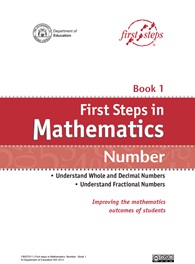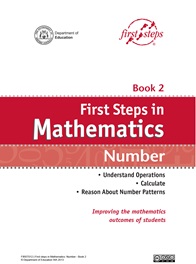To achieve this, students require a sound grasp of the meanings of numbers and how we write them. They also need to develop an understanding of the meaning and use of basic operations, a working and flexible repertoire of computational skills, and the capacity to identify and work with number patterns and relationships. A wide range of learning experiences will enable students to understand numbers, understand operations, and to calculate and reason about number patterns and relationships.
As a result they will be able to achieve the following outcomes.
Understand Whole and Decimal Numbers
Read, write and understand the meaning, order and relative magnitudes of whole and decimal numbers, moving flexibly between equivalent forms.
Understand Fractional Numbers
Read, write and understand the meaning, order and relative magnitudes of fractional numbers, moving flexibly between equivalent forms.
Understand Operations
Understand the meaning, use and connections between addition, multiplication, subtraction and division.
Calculate
Choose and use a repertoire of mental, paper and calculator computational strategies for each operation, meeting required degrees of accuracy and judging the reasonableness of results.
Reason About Number Patterns
Investigate, generalise and reason about patterns in numbers, explaining and justifying the conclusions reached.



